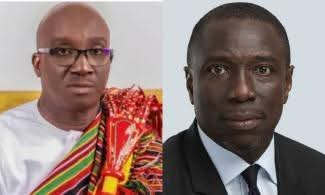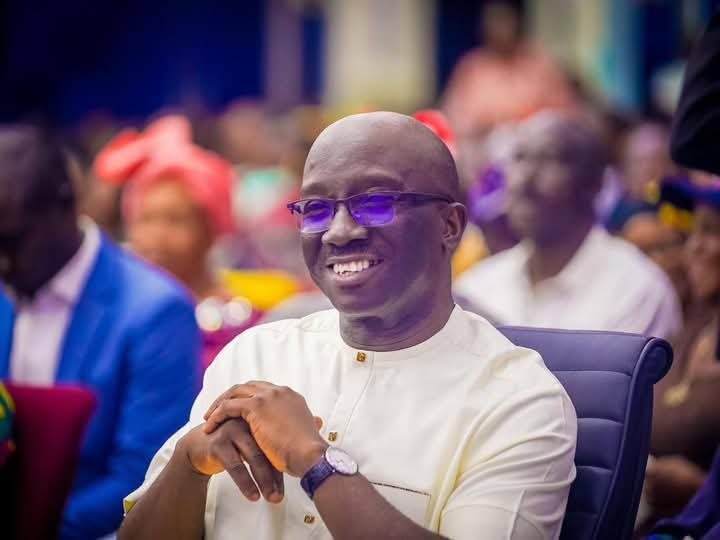A pie in the sky is often used to describe an illusion—an enticing dream that, despite its allure, remains beyond reach. It represents aspirations that are detached from reality, fantasies that refuse to materialize no matter how fervently pursued.
The ambition to govern Edo State is, in itself, a noble one. Every qualified individual has the right to aspire to public office. However, ambition must be matched with prudence, and political aspirations should be pursued with a sense of realism. When the electorate has spoken through the ballot, and the mandate has been decisively bestowed, the logical question becomes: at what point does one accept reality and move on? There is a well-known African proverb that says, if you do not know where you are going, at least remember where you are coming from.
Since his defeat in the September 21, 2024, Edo State governorship election, the Peoples Democratic Party (PDP) candidate, Asue Ighodalo, has remained locked in a desperate and seemingly futile attempt to upend the verdict of the people. His persistent legal maneuvers appear to be nothing more than an attempt to cling to a fading hope, seeking every possible avenue to overturn the legitimate mandate freely given to Senator Monday Okpebholo, the candidate of the All Progressives Congress (APC), whom many now hail as the Akpako-messiah.
The Independent National Electoral Commission (INEC) had declared Senator Okpebholo the winner of the election, having secured 291,667 votes, defeating Ighodalo, who garnered 247,655 votes. In a democracy, elections are won and lost at the polling units, and when the people have spoken, the expectation is that candidates, especially those who claim to be democrats, would respect the will of the electorate.
Unwilling to accept the outcome, Ighodalo and the PDP swiftly took their grievances to the Edo State Election Petition Tribunal, challenging the results from 765 polling units out of the 4,519 polling units in the state. However, the tribunal’s proceedings have been anything but smooth, largely due to PDP’s apparent lack of a solid case.
The tribunal, initially set up in Benin, was relocated to Abuja due to security concerns, but the change in venue did little to alter the PDP’s approach. Instead of diligently presenting its arguments, the party resorted to deliberate delay tactics, seemingly intent on dragging out the process rather than proving its claims.
At the peak of these antics, PDP’s legal team, led by Adetunji Oyeyipo (SAN), sought adjournments on the flimsy excuse that their witnesses had experienced “travel disruptions.”
“My Lords, this is the reason we are unable to present them today. We urge your Lordships to give us another date. We undertake that on the next date, we will bring as many witnesses as may be convenient for the tribunal.”
This statement, however, did not sit well with the tribunal’s chairman, Justice Wilfred Kpochi, who expressed clear displeasure over the PDP’s time-wasting tactics. The tribunal firmly ruled that the party should proceed with its case immediately, as it had been adequately informed beforehand.
Even more telling is the fact that, despite initially planning to present a robust lineup of witnesses, the PDP abruptly closed its case on Monday, February 3, after calling only 19 witnesses—a sharp contrast to the aggressive posturing it had displayed earlier.
At the same time, the party made unsubstantiated claims that the APC was intimidating its witnesses, yet it failed to present any credible evidence to support these allegations. These inconsistencies raise the question: was the PDP truly prepared for this legal battle, or was it simply engaging in a futile exercise meant to create unnecessary political tensions?
Now that the PDP has closed its case against the APC and Governor Okpebholo, one can only hope that the party will allow INEC and the APC to present their defense without further obstruction.
Rather than continuing on this path of endless litigation, it would be far more beneficial for Ighodalo and the PDP to reflect on the reasons for their defeat, realign their political strategies, and focus on constructive opposition—one that strengthens democracy rather than weakens it.
Ultimately, elections are not won in courtrooms but at the polling booths, and the people of Edo State have spoken. It is time to respect their choice.
*Fred Itua is the Chief Press Secretary to Edo State Governor*





